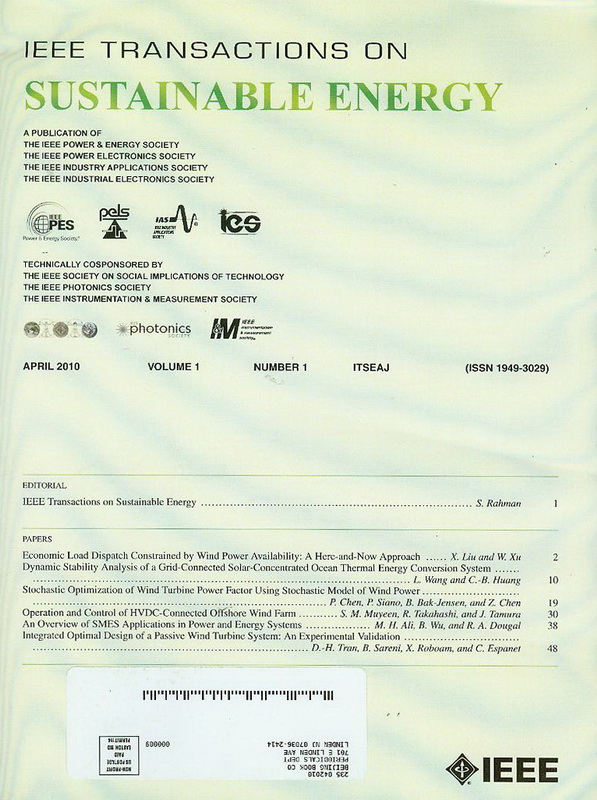Platform Pitch Motion Suppression for Floating Offshore Wind Turbine in Above-Rated Wind Speed Region
IF 10
1区 工程技术
Q1 ENERGY & FUELS
引用次数: 0
Abstract
A novel control strategy of platform pitch motion suppression is presented for floating offshore wind turbines (FOWTs). System analysis shows that the platform pitch motion acts as unstable zero dynamics, resulting in non-minimum phase characteristics. The proposed strategy consists of a nonlinear generator torque compensator and a multiplicative feedback-based gain-scheduled proportional-integral (GSPI) blade pitch controller. The proposed torque compensator directly compensates the non-minimum phase system to a minimum phase one. It breaks the limitation of the platform pitch motion on the bandwidth of the blade pitch controller. Moreover, the simultaneous multiplicative feedback of rotor speed and platform pitch angular velocity is proposed as a new framework for platform pitch suppression. It gets rid of the requirements by cascade control for decoupled dynamics of dual loops. Meanwhile, a GSPI controller is used to determine the blade pitch angle. Stability proof is given for the proposed method. Compared with the traditional methods, such as PI gain-detuning and cascade control, simulation results demonstrate that the proposed control strategy performs better in platform pitch suppression.浮式海上风力涡轮机在额定风速以上区域的平台俯仰运动抑制
本文针对浮式海上风力涡轮机(FOWT)提出了一种抑制平台俯仰运动的新型控制策略。系统分析显示,平台变桨运动是不稳定的零动态,导致非最小相位特性。所提出的策略包括一个非线性发电机扭矩补偿器和一个基于乘法反馈的增益调度比例积分(GSPI)叶片变桨控制器。拟议的扭矩补偿器可将非最小相位系统直接补偿为最小相位系统。它打破了平台俯仰运动对叶片俯仰控制器带宽的限制。此外,还提出了转子速度和平台螺距角速度的同步乘法反馈作为平台螺距抑制的新框架。它摆脱了级联控制对双环解耦动力学的要求。同时,使用 GSPI 控制器来确定叶片俯仰角。提出的方法给出了稳定性证明。与 PI 增益调整和级联控制等传统方法相比,仿真结果表明所提出的控制策略在平台螺距抑制方面表现更佳。
本文章由计算机程序翻译,如有差异,请以英文原文为准。
求助全文
约1分钟内获得全文
求助全文
来源期刊

IEEE Transactions on Sustainable Energy
ENERGY & FUELS-ENGINEERING, ELECTRICAL & ELECTRONIC
CiteScore
21.40
自引率
5.70%
发文量
215
审稿时长
5 months
期刊介绍:
The IEEE Transactions on Sustainable Energy serves as a pivotal platform for sharing groundbreaking research findings on sustainable energy systems, with a focus on their seamless integration into power transmission and/or distribution grids. The journal showcases original research spanning the design, implementation, grid-integration, and control of sustainable energy technologies and systems. Additionally, the Transactions warmly welcomes manuscripts addressing the design, implementation, and evaluation of power systems influenced by sustainable energy systems and devices.
 求助内容:
求助内容: 应助结果提醒方式:
应助结果提醒方式:


